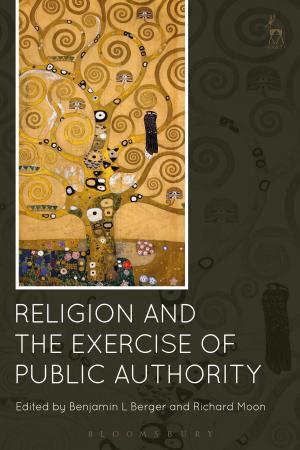Ethnography as Christian Theology and Ethics
Nonfiction, Social & Cultural Studies, Social Science, Anthropology, Religion & Spirituality, Theology, Christianity| Author: | ISBN: | 9781441126269 | |
| Publisher: | Bloomsbury Publishing | Publication: | April 28, 2011 |
| Imprint: | Continuum | Language: | English |
| Author: | |
| ISBN: | 9781441126269 |
| Publisher: | Bloomsbury Publishing |
| Publication: | April 28, 2011 |
| Imprint: | Continuum |
| Language: | English |
In response to a variety of critical intellectual currents (post-colonial, post-modern, and post-liberal) scholars in Christian theology and ethics are increasingly taking up the tools of ethnography as a means to ask fundamental moral questions and to make more compelling and credible moral claims. Privileging particularity, rather than the more traditional effort to achieve universal or at least generalizable norms in making claims regarding the Christian life, echoes the most fundamental insight of the Christian traditionGÇöthat God is known most fully in Jesus of Nazareth. Echoing this scandal of particularity at the heart of the Christian tradition, theologians and ethicists involved in ethnographic research draw on the particular to seek out answers to core questions of their discipline: who God is and how we become the people we are, how to conceptualize moral agency in relation to God and the world, and how to flesh out the content of conceptual categories such as justice that help direct us in our daily decisions and guiding institutions.
In response to a variety of critical intellectual currents (post-colonial, post-modern, and post-liberal) scholars in Christian theology and ethics are increasingly taking up the tools of ethnography as a means to ask fundamental moral questions and to make more compelling and credible moral claims. Privileging particularity, rather than the more traditional effort to achieve universal or at least generalizable norms in making claims regarding the Christian life, echoes the most fundamental insight of the Christian traditionGÇöthat God is known most fully in Jesus of Nazareth. Echoing this scandal of particularity at the heart of the Christian tradition, theologians and ethicists involved in ethnographic research draw on the particular to seek out answers to core questions of their discipline: who God is and how we become the people we are, how to conceptualize moral agency in relation to God and the world, and how to flesh out the content of conceptual categories such as justice that help direct us in our daily decisions and guiding institutions.















